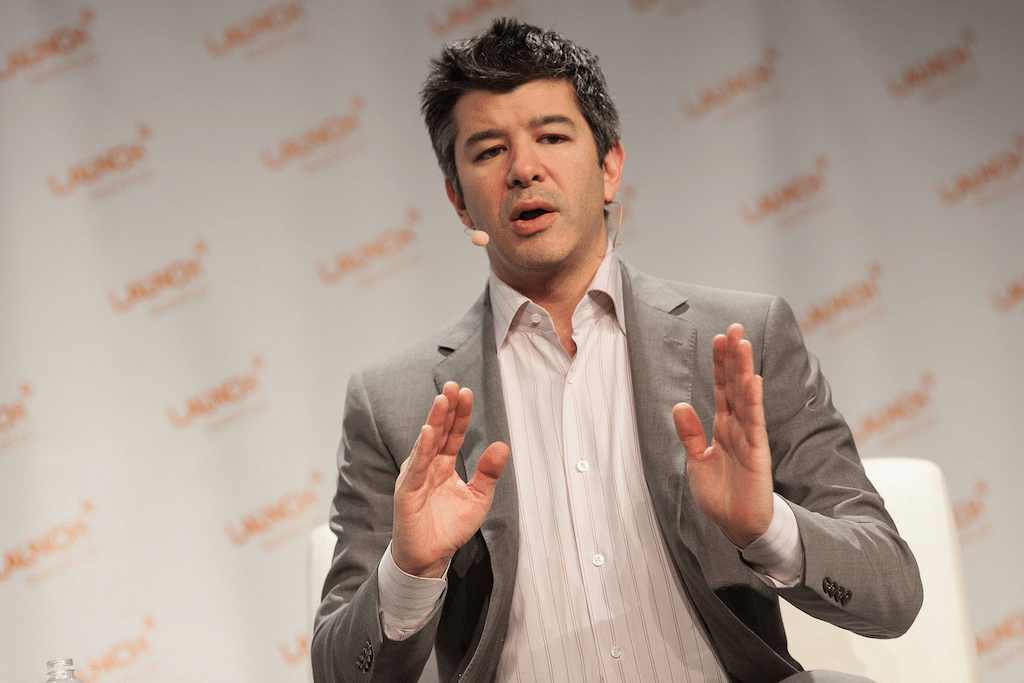Skift Take
In the 1928 U.S. presidential campaign, the Republicans argued that a victory for Hoover would mean "a chicken in every pot and a car in every garage." Likewise, Uber's campaign to woo European cities promises a chicken in every pot and a lot fewer cars and garages.
Uber CEO Travis Kalanick says he will be spending additional time in Euope this year, a geography where the ride-sharing service has faced some of its stiffest resistance from legal authorities, particularly in Germany, Spain and France.
Speaking at the DLD conference in Munich January 18, Kalanick said Uber wants to make 2015 a year characterized by new partnerships with European cities, arguing that such partnerships can create 50,000 new EU jobs in 2015. A blog post expanded on the strategy, as well.
“What does this mean at the end of 2015, if we can make these partnerships happen we create 50,000 new EU jobs,” Kalanick said. “Remember, that’s for 2015. That’s in one year. And this is an exponentially growing company with operations that exponentially grow in each of the cities. What happens when that triples the year after and doubles the year after that. It becomes a huge job generator.”
Kalanick used the talk to argue that outdated laws in many cities have stifled progress and served to benefit entrenched taxi and transportation industries instead of furthering the public good.
Of course, many of these established transportation companies counter that Uber is hurting jobs by providing unfair competition. Kalanick’s job-creation math apparently didn’t take job losses from existing players into account.
Kalanick said Uber worked with 22 jurisdictions last year to pass laws regulating ride-sharing and that these regulations can help create jobs, ensure public safety, enhance competition, and reduce traffic congestion and carbon emissions.
Following are some quotes from Kalanick’s talk and the full video is embedded below.
Fewer Cars
“We want to take 400,000 cars off of EU roads in 2015 and we want to bring UberPool to more EU cities, reducing congestion and emissions.”
Data Partnerships
“And so my main message is this: We want to make 2015 the year where we establish a new partnership with EU cities, where we push for progressive regulations, where we ensure innovation and help build the smart cities of tomorrow, some of which I’ve outlined earlier; where we promote core city functions through partnerships on data and technology, and where we provide massive economic benefit to cities and their economies.”
Challenges From Incumbents
“Of course we have challenges from incumbents. You may have read about them. France, Spain, Germany. Incumbents are often taking legal means to try to slow down progress. Competition authorities, however, across the EU have spoken out urging governments to repeal anticompetitive laws and regulations. These are competition authorities from France, from Italy, Germany, Spain, the Netherlands etc. And that is important to know because they see the rules that are out there that are keeping progress from happening and they know that it is not good for the consumer and it’s not good for the cities themselves.”
Back on the Grid
“It’s an off-the-grid industry. But once Uber goes into a city it is now on the grid. And so we can partner with tax authorities to increase transporation providers’ compliance and increase overall tax revenue.”
Analog Rules
“When you have new technology these rules maybe don’t make as much sense. But in addition to those old analog rules that did have a purpose what we’ve seen over decades is that there has been an almost regulatory capture. There’s been a situation where we had a good set of rules that protected people and a whole new set of rules that protected an industry. For example, in New York City there were 13,250 taxis in the 1950s. We are now 60 years later and there are 13.250 taxis in New York.”
Paris Metro
“In Paris it’s an incredibly good complement for existing transport options. For Paris the metro, of course, is everywhere in Paris. But 15 percent of all of our rides either pick up or dropoff more than a kilometer away from where the metro stops. So what that means is by complementing the existing infrastructure that’s in place we are atually extending the ability for public transportation and mass transit to serve people.”
The Daily Newsletter
Our daily coverage of the global travel industry. Written by editors and analysts from across Skift’s brands.
Have a confidential tip for Skift? Get in touch
Tags: europe, ride-sharing, uber
Photo credit: Uber CEO Travis Kalanick made a big push at the DLD conference in Munich January 18, 2015 to counter resistance to the service in Europe with a call to establish partnerships with European cities. Pictured, Kalanick speaks at an earlier event, the Launch Festival, February 24, 2014. JD Lasica / Flickr.com
